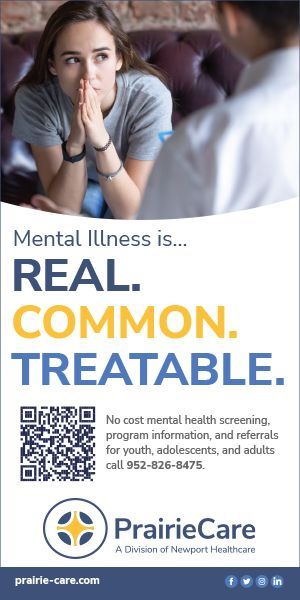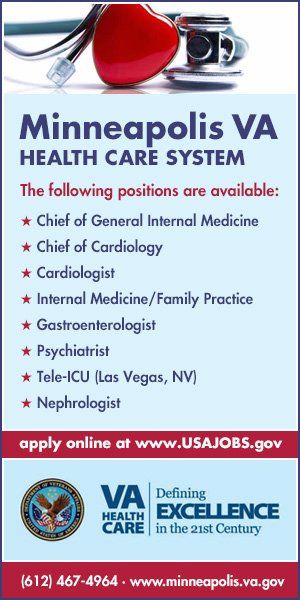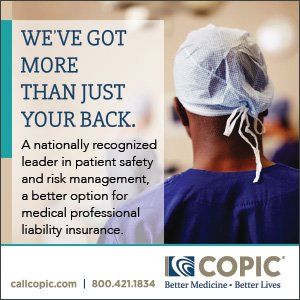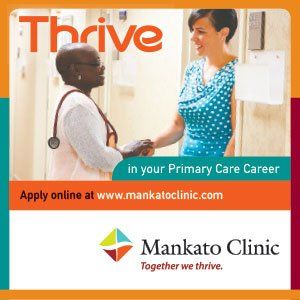medication repository program (MRP) receives donations of unused and unexpired medications. Upon receipt the donated products are inspected for quality and safety before being redistributed to under-resourced patients within the repository’s community. In the United States, each state must pursue its own legislation to create an MRP. At the writing of this article, 40 states in the U.S. have passed legislation enabling an MRP to exist within their borders, and up to 27 of these states have an operational program on some level.
Pharmacy
RoundtableRx
Free medication for those in need
BY Rachel Rockwell PharmD, RPh, MPH
With each state being responsible for its own legislation and development of an MRP operation, MRP models vary widely from state to state. Some exist as a network of pharmacies and clinics operating as the recipient, distributor and dispenser of donated medications, while others possess a central repository that receives and distributes donated medications to partner clinics and pharmacies that ultimately dispense them. The later centralized model best describes the MRP operating in Minnesota as RoundtableRx.
State MRPs will also differ in the types of products they accept, who can donate and who is eligible to receive repository medications. In Minnesota, RoundtableRx operates a general MRP, accepting nearly all medications and medical supplies. A majority of MRPs, including RoundtableRx, are unable to accept controlled substances, products requiring a Risk Evaluation and Mitigation Strategy (REMS) program, refrigerated medications and most durable medical equipment.
The largest volume of products are donated by long-term care entities where medication waste is abundant. In some states, including Minnesota, individual members of the public can also donate qualifying products to an MRP, however, all donors must attest that the product was maintained under the manufacturer’s recommended storage conditions to ensure product quality and integrity.
Prescribers are often the first to recommend the program to a patient.
MRP History
The first state to pass legislation allowing an MRP to exist was Georgia in 1997, but it was not the first state to develop an operational program. After Georgia passed its legislation, a number of other states followed suit. Based on existing information, however, it appears that Iowa was the first state with an operational program, established in 2001, that continues to function today.
Unfortunately, Minnesota was slow to the table. It was not until 2017 that University of Minnesota College of Pharmacy students collaborated with state legislators to draft MRP legislation for Minnesota. These students were committed to making a positive impact on the environment while addressing health inequities, specifically around medication access and affordability. Ultimately they found their solution in an MRP. The initiative received overwhelming bipartisan support and was adopted into law in 2019. Soon after, in December 2020, the Minnesota Board of Pharmacy designated RoundtableRx, a 501(c)(3) nonprofit, to operate the state’s first and only MRP under a pharmacy wholesale license.
The MRP in Minnesota operates with the central repository, RoundtableRx, receiving the donated medications. All donated products are thoroughly inspected for quality and safety by a pharmacist at the central repository before being redistributed. The central repository then distributes inventory to clinics, pharmacies and independent prescribers who elect to participate as local repositories. Each local repository orders only what it needs from the central repository’s no-cost inventory, and then dispenses them to eligible Minnesota residents. Local repositories are legally allowed to charge patients a small dispensing fee, but many choose to provide repository medications to their patients at no charge.
Recipient eligibility for MRP products differs across states, but the intention remains consistent – MRPs exist to connect under-resourced patients with a more affordable medication option. Minnesota residents qualify to receive RoundtableRx products if they are uninsured or under-insured and reside in Minnesota at the time of care. This includes seasonal workers and new immigrants.
The term under-insured is not defined in Minnesota statute, but can be interpreted as an otherwise qualified Minnesota resident going without his or her needed medications because of cost. This includes individuals with high-deductible private health insurance plans, those awaiting prior-authorizations, or seniors on Medicare who find themselves in the infamous ‘donut hole.’ According to available data, most RoundtableRx recipients are over 65 years old.
Physician Involvement
Prescribers are key to RoundtableRx program awareness. Without them eligible recipients will not have access. According to RoundtableRx recipients, prescribers are often the first to recommend the program to them. Furthermore, prescribers can be the champion within their clinic or health care system to create access to RoundtableRx for their patients, such as becoming established as a local repository partner. Furthermore, prescribers may recommend individual patients and their families to donate excess medications to an MRP.
Program limitations are based on legislation. Some exclusions apply to patient eligibility and products accepted for donation. Currently, recipients of Minnesota medical assistance and MinnesotaCare are ineligible to receive medications from RoundtableRx. However, RoundtableRx staff are going to the legislature this next session to address this. Minnesota is the only state with a fully operational MRP to exclude this group.
Not all medications and medical supplies can be acceptable to donate. Because product quality and safety are of the utmost priority for MRPs, opened, compromised or expired products are not accepted. Controlled substances, refrigerated items and medications requiring REMS programs are also not accepted. These restrictions and exclusions are consistent across most states with an MRP, including in Minnesota.
Looking Back
In 2019, RoundtableRx was selected as the 501(c)(3) non-profit to operate the MRP for the state of Minnesota. The story of the program, however, originated with students in the University of Minnesota College of Pharmacy, in 2017. These students were troubled by the amount of medication waste produced, specifically the tons of high-quality unexpired medications wasted annually by the long-term care industry. Furthermore, they were disturbed by the fact that there were thousands of Minnesotans forgoing these same medications every year because of cost. They found their solution in MRPs operated by states like Iowa and Wyoming. Despite being students at the time, they set forth to establish an MRP in their own state of Minnesota. Early in their work, these students discovered that Minnesota did have existing legislation allowing an oral oncology MRP to exist, the legislation as it was written, however, was prohibitive and there was no entity operating a program in Minnesota. With the assistance of SIRUM, the national leader in medication redistribution, as well as representatives of other state MRPs, the students took their idea to the Minnesota legislature. In 2019, the legislature passed their bill with bipartisan support allowing a general MRP to exist in the state.
Medical professionals from all areas can be involved with RoundtableRx
Progress to Date
Through a partnership with SIRUM, RoundtableRx received its first shipment of donated medications from a long-term care entity in December 2020. In March 2021, the first repository medications were delivered to a patient in need in Hennepin County. As of March 2023, this first patient was continuing to return to RoundtableRx for medication needs. By the end of September 2023, RoundtableRx had delivered nearly 45,000 days of medications to Minnesotans in need. The value of the medications distributed is approaching $250,000. This, however, is a gross underestimate of the money actually saved by patients and the health care system, as the value is calculated using National Average Drug Acquisition Cost (NADAC) pricing.
RoundtableRx does not have data on the cost patients would have otherwise paid at their pharmacy counter, nor the cost savings to the healthcare system from improved medication compliance.
The top medications distributed are a combination of brand name and generic products, with apixaban, metformin and atorvastatin being the top three most distributed medications. Medications used to treat heart disease, mental health conditions and diabetes are among the most distributed by RoundtableRx, which is consistent with distribution patterns of MRPs nationally.
As a wholesaler, RoundtableRx relies on local repository partners to identify eligible patients, order from available inventory and dispense. Local repositories are clinics, pharmacies or independent prescribers that elect to partner with RoundtableRx. As local repository partners, practitioners have full access to RoundtableRx’s inventory of no-cost medications with no order minimums or maximums.
A list of active local repository partners can be found on the RoundtableRx website.
RoundtableRx’s warehouse is physically located in Minneapolis, but the program exists to serve the entire state. With local repository partners as far north as International Falls and as far south as Winona, RoundtableRx is on a mission to establish local repositories statewide, with existing partnerships representing 12 unique Minnesota counties. Areas of the state where local repository partners are most needed are the East Metro, as well as the southern and northwestern parts of Minnesota. All clinics, pharmacies and independent prescribers, however, are encouraged to become local repository partners to ensure patients have access to affordable medications when they need them.
The Minnesota Board of Pharmacy has a memorandum of understanding with RoundtableRx to operate the MRP for the state and also issues RoundtableRx’s wholesale license. The board is also responsible for the disbursement and oversight of funds appropriated to RoundtableRx from the state’s general fund, which is the greatest source of funding at this time.
Next Steps
Recruitment and expansion of local repository partnerships is a continued focus for RoundtableRx. By 2025, RoundtableRx aims to have local repository partners in a majority of Minnesota’s 87 counties. Cultivating these partnerships can be time consuming and challenging with staff shortages being experienced throughout the field of health care. However, RoundtableRx strives to make establishing and stewarding a partnership as simple as possible. For entities pursuing a partnership, RoundtableRx staff offer regular check-ins on progress, and training sessions and even offer to connect entities to existing local repository partners of similar size. To make interpreting the laws and regulations around the program easier, RoundtableRx also offers an optional policies & procedures template to make training staff and implementing the program into the workflow smoother.
Operations at RoundtableRx are largely modeled on those in Iowa and Wyoming. In line with this, RoundtableRx intends to open a mail-order dispensing pharmacy in 2024. Currently, access to RoundtableRx is heavily dependent on a patient’s proximity to a local repository site, therefore Minnesotans in remote areas of the state or those with transportation barriers struggle to access RoundtableRx medications. A mail-order pharmacy operated by RoundtableRx would improve access for those not currently served by a local repository.
Medical professionals from all areas can be involved with RoundtableRx as a means to improve sustainability in health care as well as medication access. Whether prescribers or social workers, medical professionals can educate under-resourced Minnesotans about this relatively new source of affordable medications. Recommending patients and their families to donate excess medications to RoundtableRx is also critical to operations. Individual donors are the primary source of high-demand inhalers, brand name medications and oral oncology agents. Outside of Google, individuals frequently hear about donating their unneeded medications to RoundtableRx by a medical professional like you.
Rachel Rockwell, PharmD, RPh, MPH,
is the managing director & pharmacist in charge at RoundtableRx.
MORE STORIES IN THIS ISSUE
cover story one
The Minnesota CANDOR Act: Addressing adverse events
By Nels E. Dyste
cover story two
Unveiling the Future: Artificial Intelligence in Spine Surgery
By Omar Ramos, MD



















